DESMOND TUTU MEMORIAL OP-ED
The bells of Westminster Abbey toll for The Arch
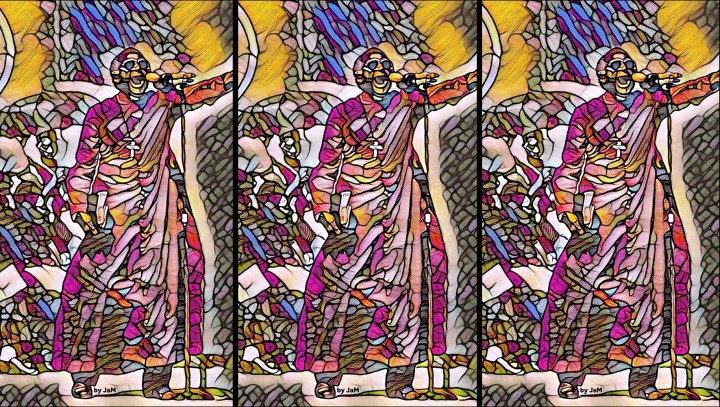
Thursday’s memorial service at Westminster Abbey saw hundreds of friends of the beloved Archbishop Desmond Tutu literally walking over the body of another evangelical non-conformist, David Livingstone.
“Over my dead body!”, evangelicals of the past might have protested a mere two hundred years ago if it were suggested that one day their glorious temple of Christendom might be filled by the people of the dark continent they once sent their missionaries to enlighten (while simultaneously subjugating them through colonialism, abject racism and apartheid, the ramifications of which are still being felt to this day).
And so, it was not without a touch of irony that Thursday’s memorial service at Westminster Abbey would find as many as five hundred celebrants literally walking over the dead body of the greatest of those pioneering missionaries: David Livingstone, whose body is interred beneath a marble tablet set in the hallowed floors of this magnificent 750-year-old building, close to its entrance so that all who would visit this place must walk over it.
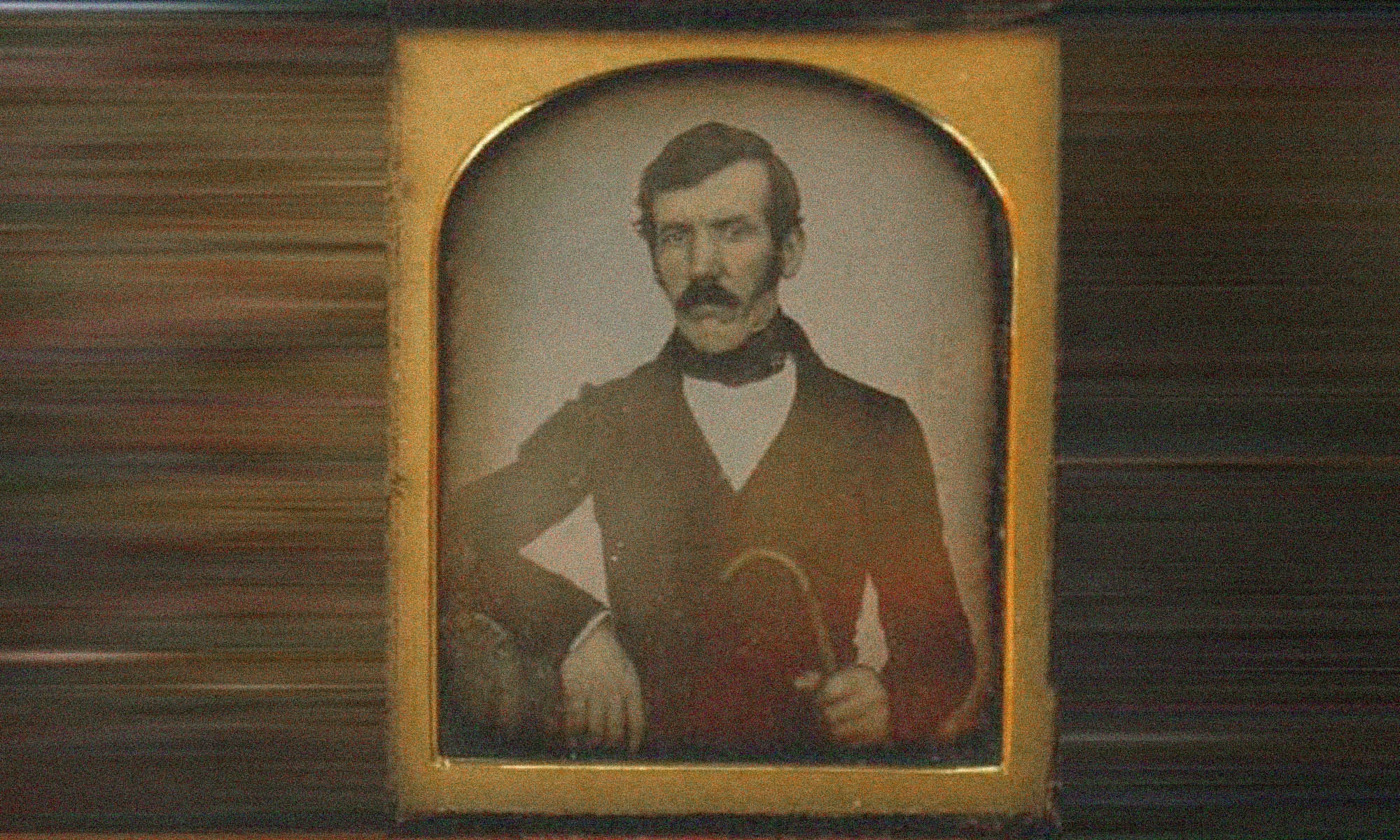
Portrait of David Livingstone. (Photo: Wikimedia Commons)
Of course, it would be a grave injustice to lay the blame for all that followed Livingstone’s exploits at his feet, for indeed, he was an evangelical non-conformist who fought against the assumed divine right to rule other races and subject them to slavery. In the context of his times, he was a progressive thinker.
It was another non-conformist Christian whose life and service the attendants of the thanksgiving service had come to celebrate; that of the beloved Archbishop Desmond Tutu, or simply “The Arch” to his many friends throughout the world. And from all over the world they came, although it could be fairly said that the vast majority hailed from Britain (mostly dressed formally, in respectful black and dark colours) and South Africa (whose brighter, more casual and vibrant dress codes were clearly evident).
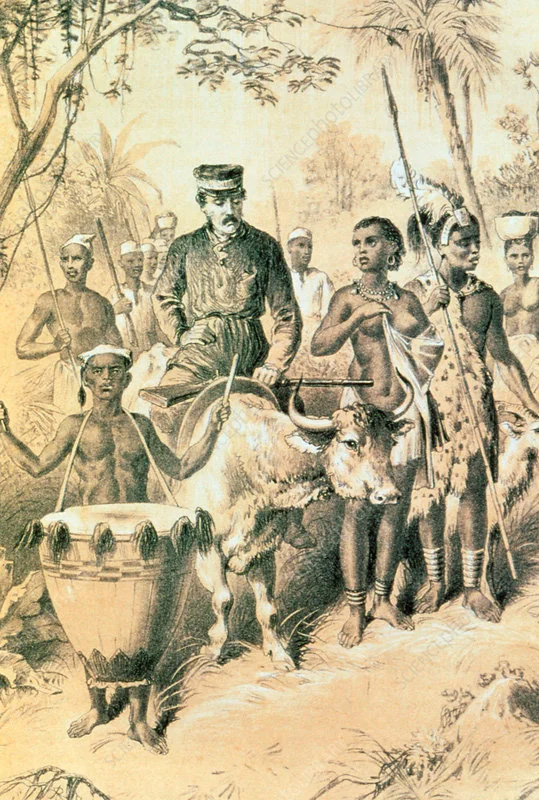
Engraving of David Livingstone (1813-1873), Scottish explorer, with native Africans during an expedition. Livingstone (sitting on the cow) is suffering from fever as he travels to Chief Shinte’s town. (Image: Wikimedia Commons)
The memorial service had been put off for six months due to lockdown measures imposed by the host country after a resurgence of a frightening new strain of the coronavirus emanating from – as fate would have it – South Africa, igniting a rash of irrational restrictions imposed against that country by the British government, begging the inquiry as to how far it had really progressed since its colonialist past, especially when it now plans to embark on a programme of shipping Africans and other migrants against their will to foreign lands. How different is this Rwandan deportation scheme from Britain’s past forceful exportation of slaves?
The Brits and South African expats who filled Westminster Abbey last week to celebrate the life of a cleric who fought against such prejudices and forgave their perpetrators in equal measure are evidence of advancements in Anglo-South African relations, thanks in no small way to the reconciliatory teachings of Tutu himself. Here were people, different in their dress sense perhaps and the gusto with which they sang their respective anthems, yet united in their appreciation of Tutu’s doctrine of love and forgiveness.
As they took their seats under the watchful eye of the church orderlies, the excited chatter of the South Africans quickly gave way to the more sedate behaviour of the Brits. It was clear from the start that this would be a service whose gravitas would live up to both the place where it was being held, and the person it was to honour. My companion, a South African expat who has lived in England for the past 30 years, quietly remarked that she hoped there’d be someone to “lively up” the programme, as that was surely what The Arch would have wanted.
Being a choral evensong event, the choir opened the order of service with a heavenly rendition of the Introit;
“Ecce sacerdos magnus qui in diebus suis placuit Deo, et inventus est Justus.” (Behold a great priest who in his days was pleasing unto God, and was found to be righteous).
Followed by a hymn, sung by all, during which the procession moved to places in Quire and the Sacrarium:
“Through many a day of darkness,
through many a scene of strife,
The faithful few fought bravely
To guard the nation’s life.
Their gospel of redemption,
Sin pardoned, man restored,
Was all in this enfolded,
One Church, one Faith, one Lord” …
I pondered whether that last line was in step with The Arch’s gospel, remembering how he invited other faiths into his holy sanctum of St George’s Cathedral in Cape Town to enjoin in his crusade of inclusivity.
The Very Reverend Dr David Hoyle, MBE, Dean of Westminster, gave the Bidding to remember “our friend, our brother, our bishop” and give thanks for his “humility and humour, his faith and his discipline and discernment”, acknowledging Tutu’s “courageous commitment to reconciliation and justice, his hope and his understanding of freedom under God”.
The choir filled the church with its heavenly song, invoking a spirit, or energy, that even the faithless would not deny.
Reading from Leviticus, Canon-in-Residence the Reverend David Stanton reminded all in attendance of further virtues of The Arch as he spoke of kindness towards the poor and the alien, truth and justice, the absence of hate and vengeance, and the decree that we should all love our neighbour as we love ourselves. This scripture would be echoed by a very special speaker on the programme in a remark as damning as it was poignant.
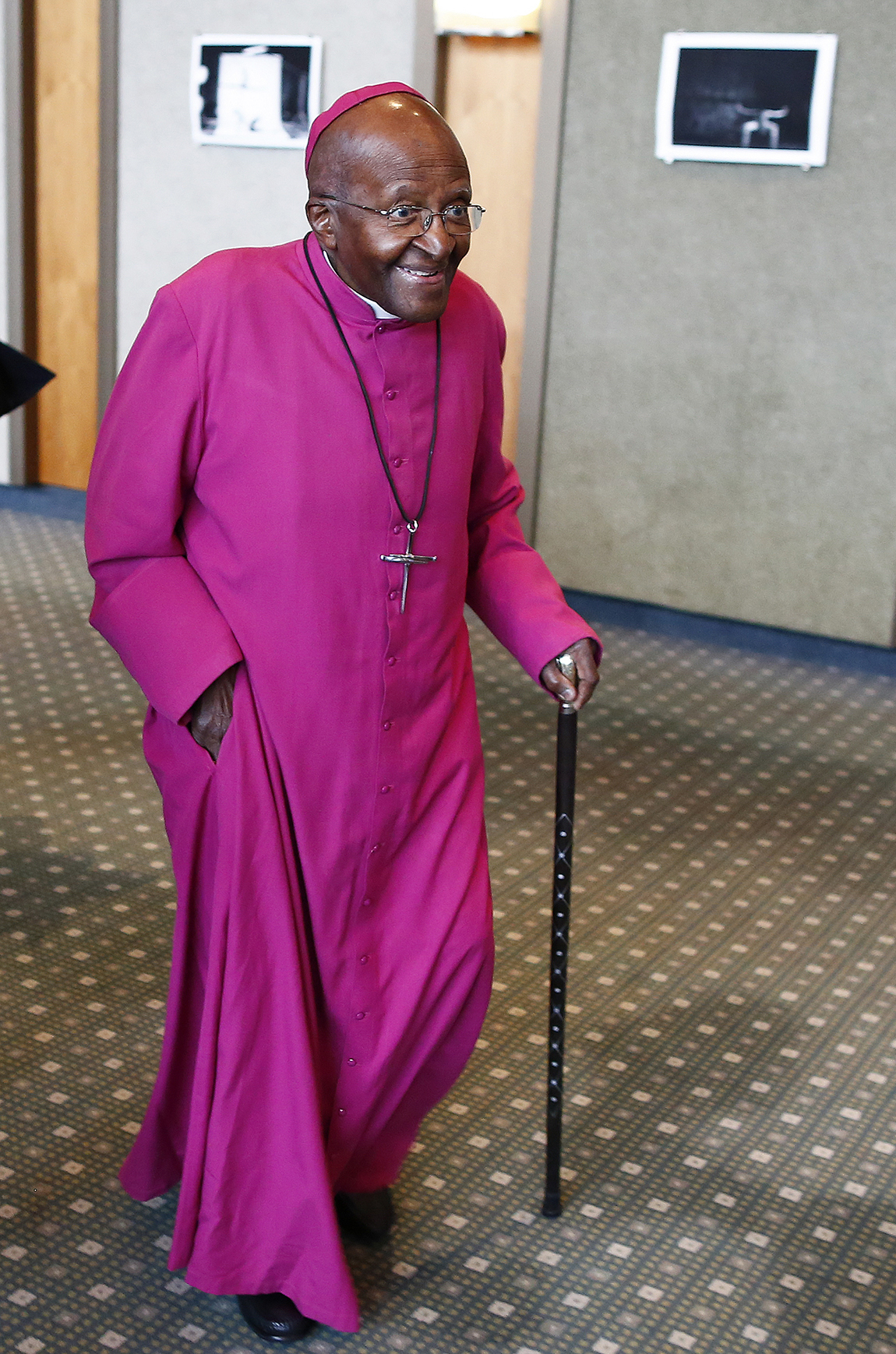
(FILE) – Former South African Anglican Archbishop Desmond Tutu arrives at the Youth Health Festival on Youth Day in Cape Town, South Africa 16 June 2016 (reissued 26 December 2021). Desmond Tutu has died aged 90, the South African presidency said on 26 December 2021. As a leading spokesperson for the rights of black South Africans, Tutu in 1984 received the Nobel Prize for Peace for his role in the opposition to apartheid in South Africa. (Photo: EPA-EFE/Nic Bothma)
Another hymn was followed by the Beatitudes delivered by Edith Slee, continuing the championing of the poor and downtrodden into the New Testament. Speaker after speaker gave thanks for The Arch, supported by the texts by which he lived, in interesting deliveries interspersed every now and again by peaceful choral respite.
This was truly a wonderful, carefully curated tribute, fit for the person it was honouring. Each speaker kept their presentation tight and efficient and the transition between speakers was as if it were choreographed, so smooth it was. The acoustics were pitch-perfect, the soft afternoon light shone through the stained glass windows projecting shadow and light upon the marvellous architecture.
All seemed flawless, yet something was missing. We received a hint of it when eventually one speaker, Lord Peter Hain whose ties to South Africa are well known, took to the pulpit and immediately went off-script to remark on the cover image of the printed programme which he held aloft; citing its source as being the cover of the Tutu biography “Rabble-Rouser for Peace” and giving thanks to the organisers for its inclusion.
He then gave thanks for “Desmond’s bubbling enthusiasm and infectious zest for humanity; his engaging and mischievous fun; his integrity and burning passion for justice, equality and liberty; for his courage as an activist”…
This casual break from the sobriety of the order of service brought some relief and prepared the congregation for the final speaker, who was none other than Desmond Tutu’s daughter, the Reverend Nontombi Naomi Tutu.
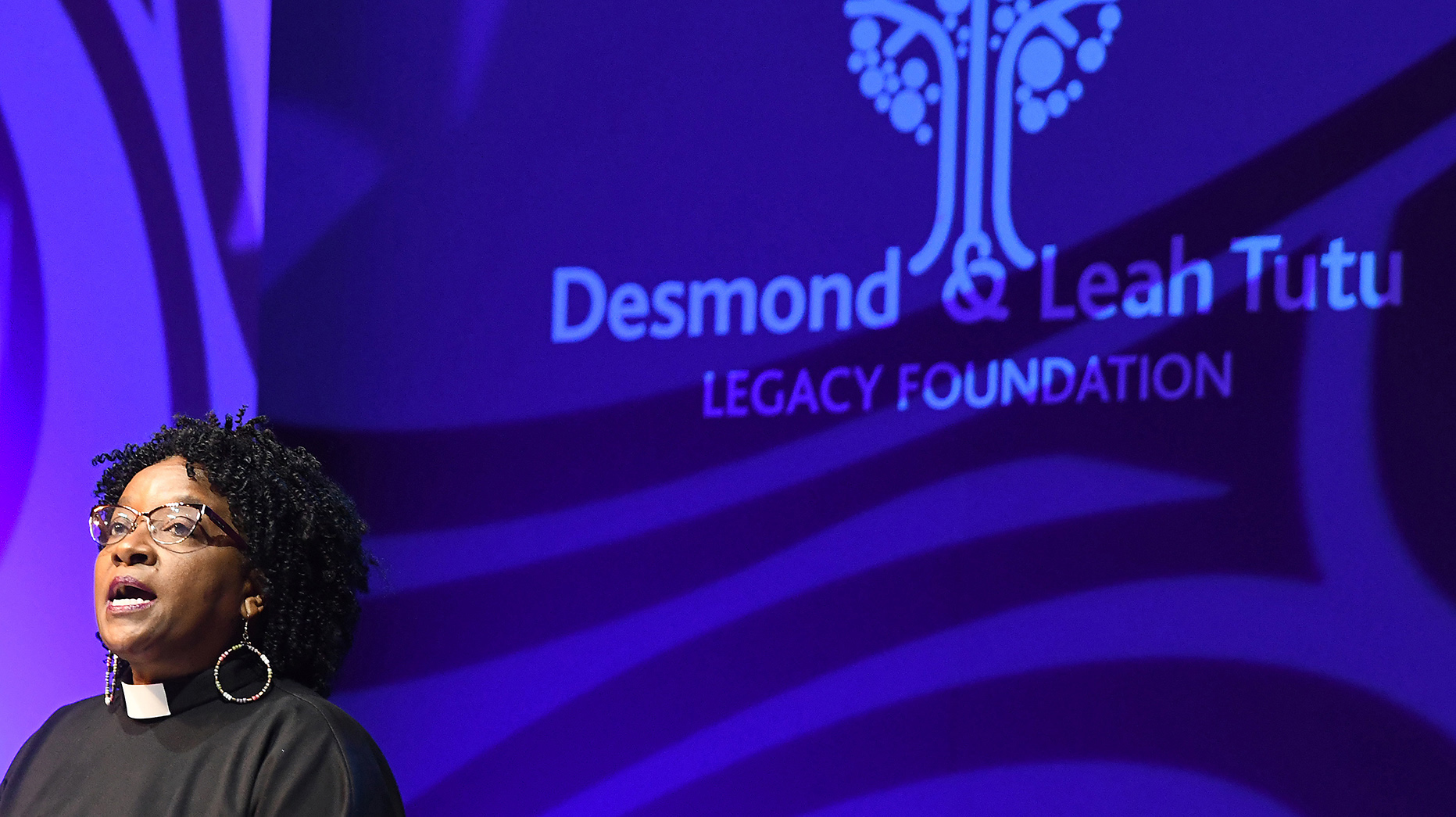
Reverend Nontombi Naomi Tutu during the 8th annual Desmond Tutu International Peace Lecture at the Artscape Theatre on 8 October 2018 in Cape Town. (Photo: Gallo Images / Brenton Geach)
Diminutive, with a striking resemblance to her father, she took to the podium and immediately demonstrated that she is every bit the speaker that he was, with the same impassioned urgency, the drawn out vowels, expressive hands, sparkly eyes and unfettered passion for social justice.
Here she stood in the same church where her father stood just eight years earlier when he eulogised his late friend and comrade Nelson Mandela, and she recalled a time before her father’s passing when his memorial planners were running their plans by him. “‘It sounds like it’s going to be wonderful’,” he enthused, “‘I wish I could be there!’”
And then she added; “And I’m sure he is!” The congregation broke into spontaneous laughter for the first time, and fittingly, it was thanks to The Arch being aptly channelled by his daughter’s self-fulfilling assertion. But she demonstrated that their similar looks notwithstanding, she has her own voice; both literally and figuratively.
Her soft, commanding tone – almost like a firm, clear whisper resounds in stark contrast to his shrill voice and infectious laughter. The emphases are similar in both sound and content; but hers are adapted for new frontiers of the fight for social justice. Her focus is on gender issues and LGBTQI+ rights, while the battle against all forms of prejudice continues.
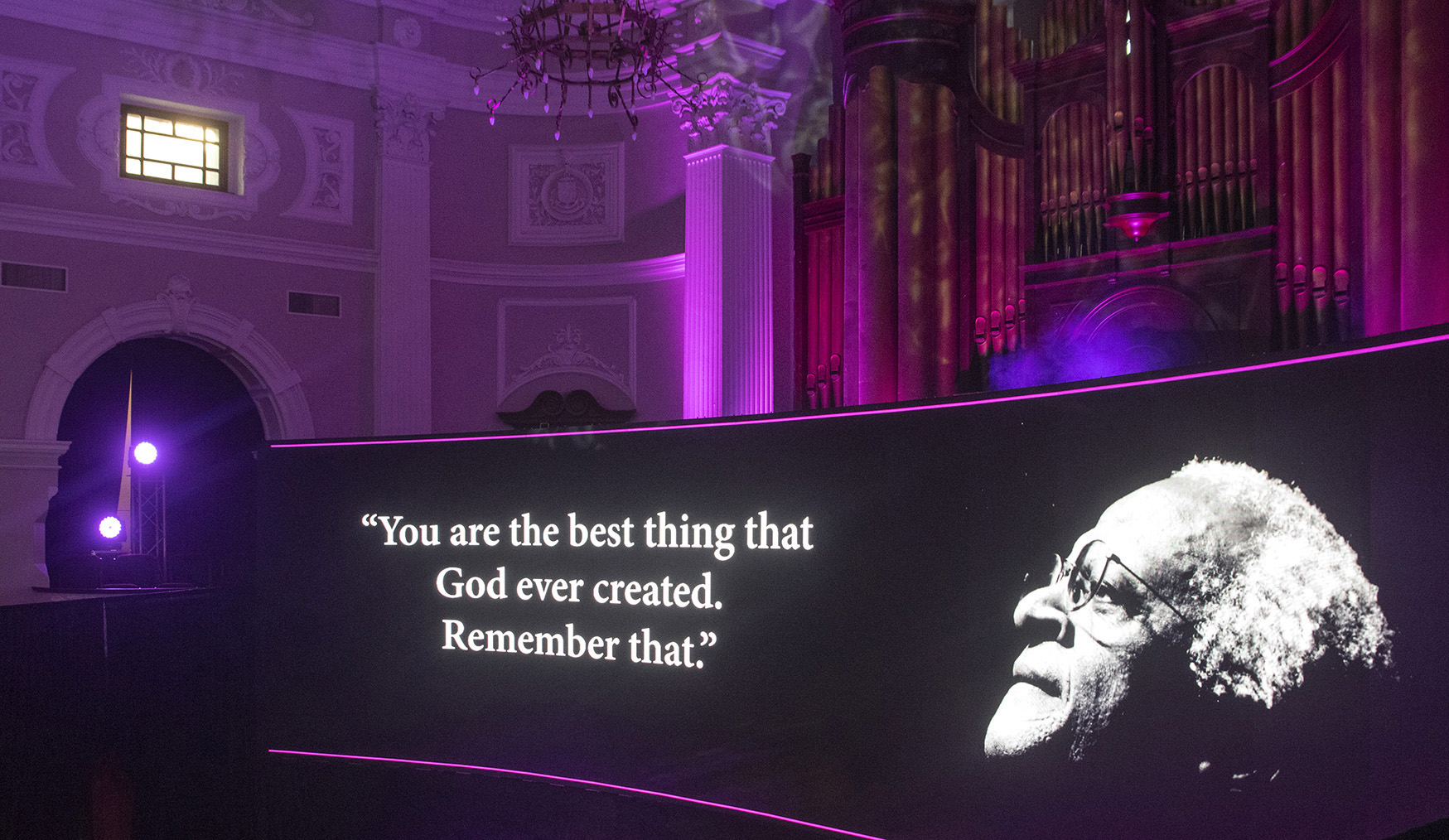
The special interfaith tribute in honour of Archbishop Emeritus Desmond Tutu’s commitment to religious inclusiveness and in celebration of his life at City Hall on December 29, 2021 in Cape Town, South Africa. Archbishop Desmond Tutu was a South African Anglican bishop and theologian, known for his work as an anti-apartheid and human rights activist. (Photo: Gallo Images/Brenton Geach)
Referring to the earlier reading from Leviticus she remarked what a perfect reading it was. From that book which is more often about ancient laws and rules so often cherry picked by so called Christians to justify their various prejudices, comes the simple, universal commandment; Love One Another.
In a world where reactionary populism is on the rise, and where human beings are being shipped off to foreign lands against their will, where a cult of intolerance has entrenched itself in places of religion and in defiance of that one commandment, her work is not done.
As the bells of Westminster sounded at the end of the service, an appreciative congregation inspired by the evening’s overwhelming message of unity emptied into the streets, and I thought I heard the bells echo: “Tutu is dead, long live Tutu!” DM/MC

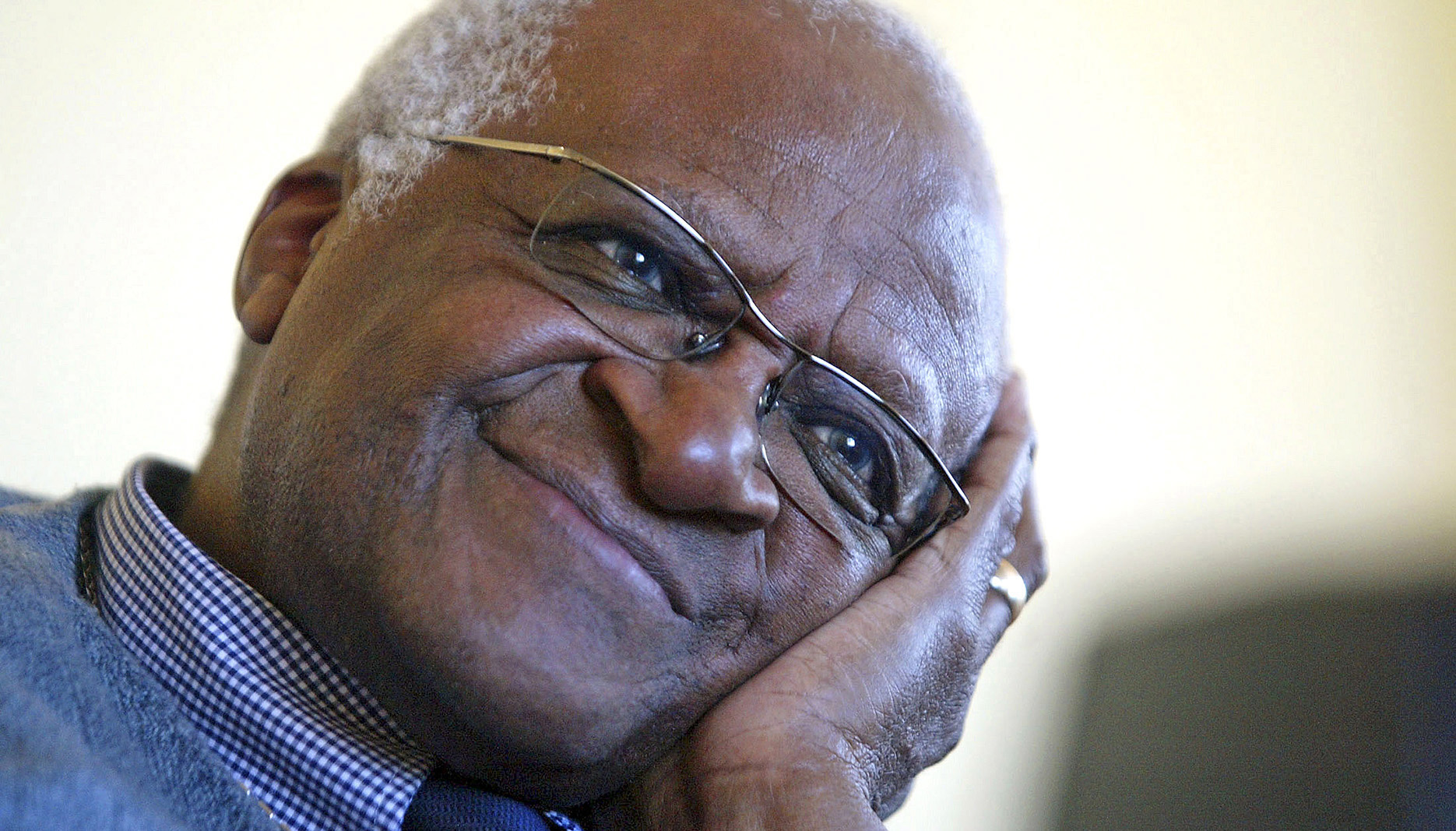









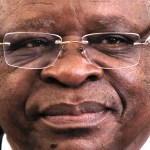







 Become an Insider
Become an Insider
If we were not super natural, we would be sub-human….. Desmond Tutu … that says it all about this great man…
He was an amazing human being.